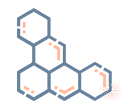Fatty Acid Oxidation Disorders Precision Panel
Fatty Acid Oxidation Disorders (FAODs) are inborn errors of metabolism resulting in failure of mitochondrial beta-oxidation or the carnitine-based transport of fatty acids into the mitochondria.


Fatty Acid Oxidation Disorders (FAODs) are inborn errors of metabolism resulting in failure of mitochondrial beta-oxidation or the carnitine-based transport of fatty acids into the mitochondria. Fatty acid oxidation takes place in the mitochondria and provides a major source of energy, especially during prolonged fasting and sub-maximal exercise. FAODs lead to deficient energy production and produce a wide range of clinical presentations ranging from mild hypotonia in adults to sudden death in infants and symptoms usually arise or exacerbate during catabolic situations, such as fasting, illness and exercise. The most common FAOD is medium-chain acyl-CoA dehydrogenase deficiency (MCADD). Typically, they are inherited in an autosomal recessive pattern.
The Igenomix Fatty Acid Oxidation Disorders Precision Panel can be used to make an accurate and directed diagnosis ultimately leading to a better management and prognosis of the disease. It provides a comprehensive analysis of the genes involved in this disease using next-generation sequencing (NGS) to fully understand the spectrum of relevant genes involved.
The clinical utility of this panel is:
Rinaldo, P., Matern, D., & Bennett, M. (2002). Fatty Acid Oxidation Disorders. Annual Review Of Physiology, 64(1), 477-502. doi: 10.1146/annurev.physiol.64.082201.154705
Knottnerus, S., Bleeker, J. C., Wüst, R., Ferdinandusse, S., IJlst, L., Wijburg, F. A., Wanders, R., Visser, G., & Houtkooper, R. H. (2018). Disorders of mitochondrial long-chain fatty acid oxidation and the carnitine shuttle. Reviews in endocrine & metabolic disorders, 19(1), 93–106. https://doi.org/10.1007/s11154-018-9448-1
Wanders, R., Vaz, F. M., Waterham, H. R., & Ferdinandusse, S. (2020). Fatty Acid Oxidation in Peroxisomes: Enzymology, Metabolic Crosstalk with Other Organelles and Peroxisomal Disorders. Advances in experimental medicine and biology, 1299, 55–70. https://doi.org/10.1007/978-3-030-60204-8_5
Rinaldo, P., Matern, D., & Bennett, M. J. (2002). Fatty acid oxidation disorders. Annual review of physiology, 64, 477–502. https://doi.org/10.1146/annurev.physiol.64.082201.154705
Roe, C., & Mochel, F. (2006). Anaplerotic diet therapy in inherited metabolic disease: Therapeutic potential. Journal Of Inherited Metabolic Disease, 29(2-3), 332-340. doi: 10.1007/s10545-006-0290-3
Olpin S. E. (2013). Pathophysiology of fatty acid oxidation disorders and resultant phenotypic variability. Journal of inherited metabolic disease, 36(4), 645–658. https://doi.org/10.1007/s10545-013-9611-5